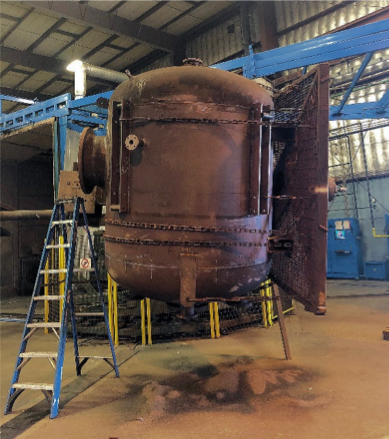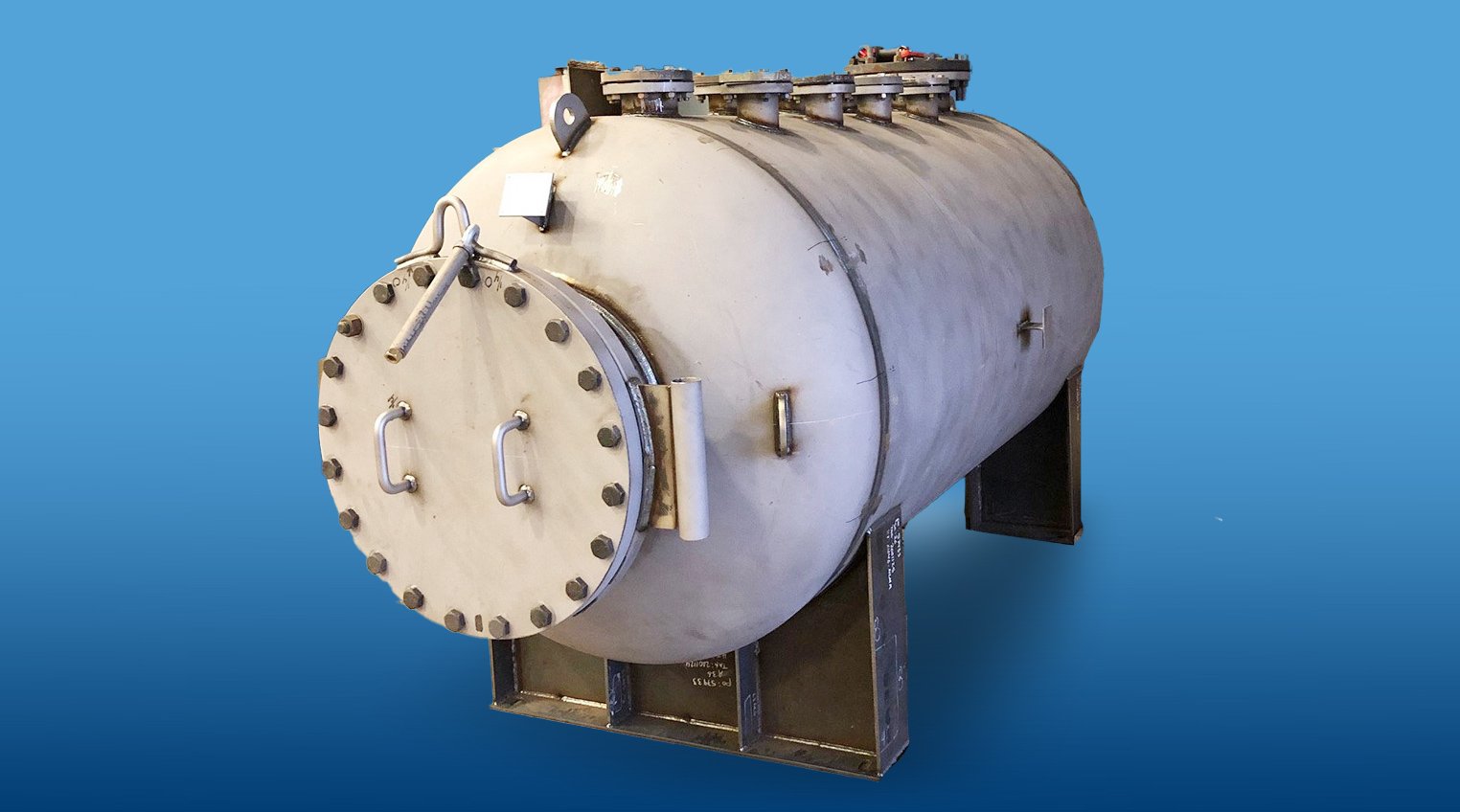Choose Tefzel™ for Toughness and Corrosion Resistance in Chemical Applications
Chemical processing equipment benefits from the installation or application of protective linings to prevent corrosion, leaks, or complete system failure. The consequences of failure or even a leak pose several risks and related expenses, such as violation of strict industry guidelines, potential environmental contamination, corresponding liability, costly repairs, or replacement of capital equipment. Operators and project engineers face several choices when it comes to liners and corrosion protection. Supply chain snarls are creating a shortage of one traditional resin, polyvinylidene fluoride (PVDF), with long lead times that can cause project delays. One possible protective solution is rotolining with Tefzel™, an ethylene tetrafluoroethylene (ETFE) produced by Chemours.
Tefzel offers similar characteristics to PVDF in terms of temperature and chemical capabilities, and it is currently available in abundant supply. This makes Tefzel a practical, viable alternative to PVDF, with excellent mechanical strength, stiffness, and above-average abrasion resistance. This can be an important consideration in industries with abrasive slurries, for example, that can cause wear and tear on other linings that are inferior. Tefzel can create a liner with:
- Protection for temperatures up to 300° F
- Resistance against higher temperature acids, bases, and solvents
- Ability to withstand full vacuum
- Above-average abrasion resistance
- Achieve thickness of up to 0.250 inches (0.188 inches typical)
- Lower permeability compared to PTFE
Superior lining protection provided by rotolining
Rotational lining applies resin to protect metal equipment that is typically exposed to corrosive substances. When Tefzel is applied, it is particularly effective in protecting against corrosion from concentrated hydrochloric acid and all concentrations of sulfuric acid. Carbon steel alone, the most common material used for pipes and vessels, will corrode with exposure to hydrochloric acid, solvents, or caustics, unless protected with some type of lining.
Rotolining involves the insertion of powdered resin into a part, which is placed into a large convection oven and heated to a temperature that causes the resin to melt. A slow tumbling or rotation causes the melted resin to evenly coat all inside surfaces with the same relative thickness. The finished piece is a monolithic, completely bonded, seamless, and stress-free liner.
Rotolining is the only process that offers this style of lining protection for vessels designed to contain corrosive materials. Spray lining, for example, results in a thinner lining and cannot attain the high-fill equivalent of rotolining. Among alternative methods, rotolining offers a number of advantages. To learn more, this post compares and contrasts available options for protective linings.
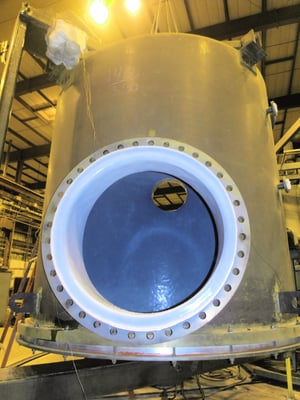 Image 1: Tefzel-lined vessel opened up for inspection
Image 1: Tefzel-lined vessel opened up for inspectionWhat makes Tefzel ETFE resin a good choice?
This particular resin offers a proven track record of performance, particularly in the chemical and petrochemical industries. It is recognized for its toughness, unique properties, and versatility. These properties combine to help solve some of the industry’s most challenging problems related to the protection of processing equipment and components.
Where other plastics or metals fail, Tefzel can supply excellent resistance to hundreds of chemicals and solvents, with the full list reaching 450 different compounds. In addition, Tefzel can withstand radiation, UV, and extreme temperatures.
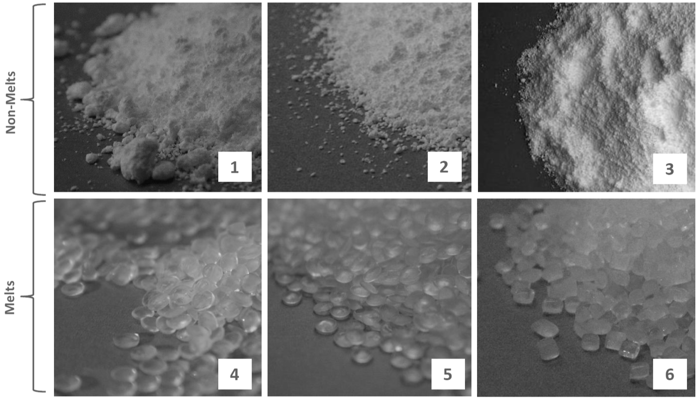 Figure 2: Raw materials for polymers: 1. PTFE, 2. fine powder, 3. micro powder, 4. FEP, 5. PFA, and 6. ETFE
Figure 2: Raw materials for polymers: 1. PTFE, 2. fine powder, 3. micro powder, 4. FEP, 5. PFA, and 6. ETFETefzel can resist a variety of substances, including:
- Strong mineral acids
- Inorganic bases
- Halogens
- Metal salt solutions
- Carboxylic acid
- Aldehydes
- Aromatic and aliphatic hydrocarbons
- Chlorocarbons
Tefzel in perfect alignment with rotolining
When considering the rotolining process of melted resin applied in an even coating onto the internal surfaces of equipment and piping, Tefzel supplies outstanding performance. It offers the following properties that align with rotolining:
- Low melting points
- High melt flow rates
- Low wear factor (1/10th of reinforced nylon)
- High impact strength and dimensional stability
- Heat resistance with a temperature rating of up to 150° C or 302° F
- Good creep resistance
- Corrosion resistance
- Low flammability
- Strong weathering capabilities up to at least 20 years
- Low moisture absorption
- Resistant to solvents and acids
- Highly abrasion resistant
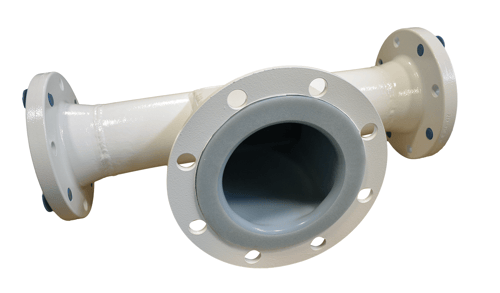 Figure 3: Tefzel lining provides corrosion resistance and nonstick surface for a chute
Figure 3: Tefzel lining provides corrosion resistance and nonstick surface for a chuteIndustry applications for rotolining with Tefzel
Within the chemical processing industry, numerous parts and equipment that require protection can fit within the rotolining convection oven/tumbler, including reactors, caissons, storage and process vessels, stripping columns, scrubbers, knockout pots, process piping, flow meters, columns, scrubbers, ducts, valves, and pump housings. Check with the engineering team to find out if your part is suitable for rotolining with Tefzel.
Signs that a company might need to make a switch from one plastic liner material to another include a blistered or torn liner, or worse, exterior corrosion of the metal. The annual or biannual shutdown period of inspection is the perfect time to inspect liners for signs of damage.
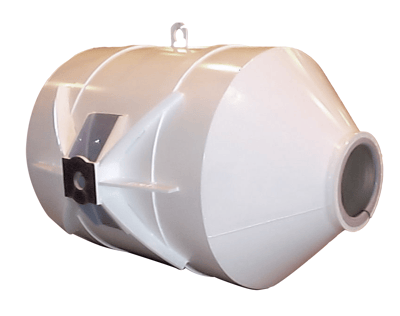 Figure 4: Tefzel-lined quartz tumbling vessel
Figure 4: Tefzel-lined quartz tumbling vesselFor example, companies involved in PVC manufacturing rely on ethylene dichloride, a highly corrosive chemical. Upon inspection, these manufacturers found that traditional lining materials, such as PTFE, do not supply an extensive lifespan under this level of corrosive activity. PVC manufacturers are finding greater success switching to Tefzel ETFE applied via rotolining.
Mining is another industry that can benefit from the abrasion resistance offered by a Tefzel lining. A company tumbling high-purity quartz, an extremely abrasive material, operated its vessels 18 hours a day at 210 F. The company had relied on PTFE lining within the tumbler at a 0.090-inch thickness, but experienced lining failure within three to six months after application. This left the company seeking a solution that could supply a longer lifespan for uninterrupted service.
When the company trialed Tefzel ETFE, the lining increased to a consistent 0.188-inch thickness throughout the interior of the tumbling vessel. Although the ETFE does pose an initial expense greater that PTFE, the payoff it supplied was an increased lifespan of four to eight times longer than PTFE.
Parts that are suitable for rotolining can have a diameter as small as 1.5 inches for pipes and fittings. Or they can be 2 inches in diameter, if approaching the maximum length of 20 feet, which is the longest piece that can fit within the oven. Learn more about the size limits for rotolining in this blog post.
Availability of both materials and oven space
Thanks to abundant oven space and a healthy supply of Tefzel, RMB Products can line objects on an emergency basis. After sending equipment or fittings to RMB, their lining experts will burn out any old or existing lining, clean the piping or equipment, prepare the surface, and line it with Tefzel for a quick turnaround.
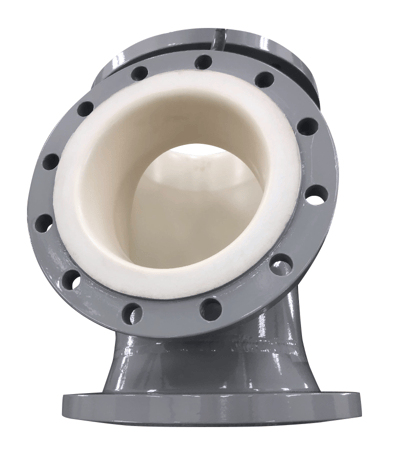 Image 5: Tefzel-lined fitting after receiving paint coat
Image 5: Tefzel-lined fitting after receiving paint coatRMB offers extensive quality assurance, such as:
- CMM validation
- Ultrasonic, spark test, and borescope inspections
- Hydrostatic testing
- ISO 9001, ASME, and AS9100 accreditation
Traditional resins, such as PTFE or PVDF, can be replaced with resins of equal or superior performance when evaluating liner material possibilities. When applied through rotolining, Tefzel ETFE creates a bonded, stress-free, seamless monolithic liner as a viable and available alternative to resins in short supply. Protect your capital equipment from corrosion and degradation by choosing rotolining with Tefzel.
Important factors involved in protective liner selection
Important questions to ask when choosing a protective liner include:
- Operating temperature
- Size of equipment
- Service environment
- Secondary chemicals
- Vacuum conditions
- Thermal cycling
- Change in temperature
- Frequency of cycling
- Coefficient of linear thermal expansion of resin
- Substrate
- Abrasion
- Life expectancy

